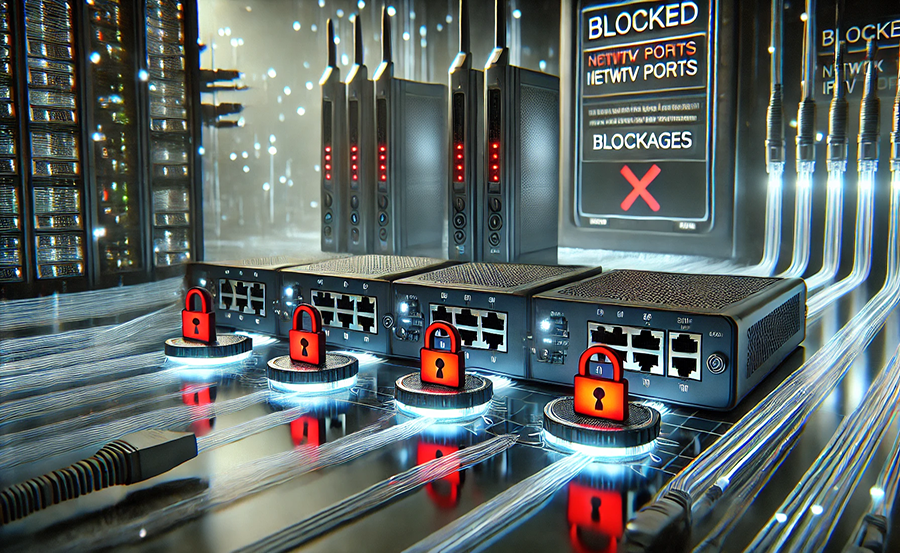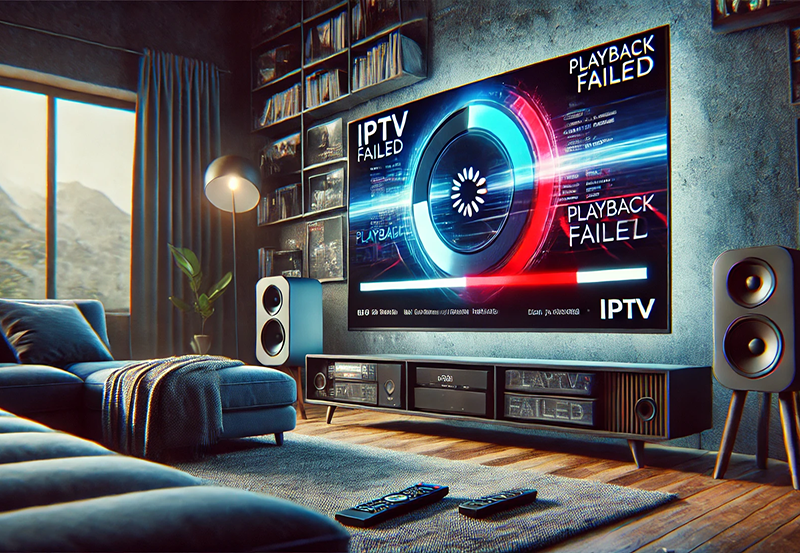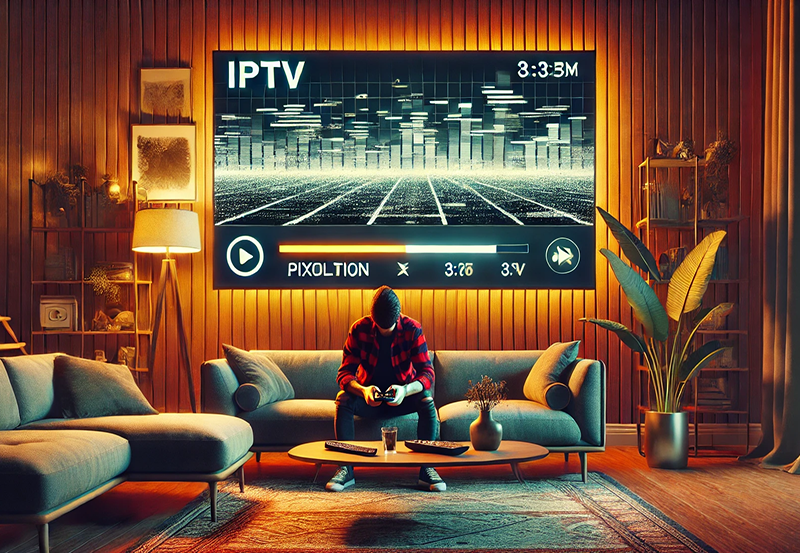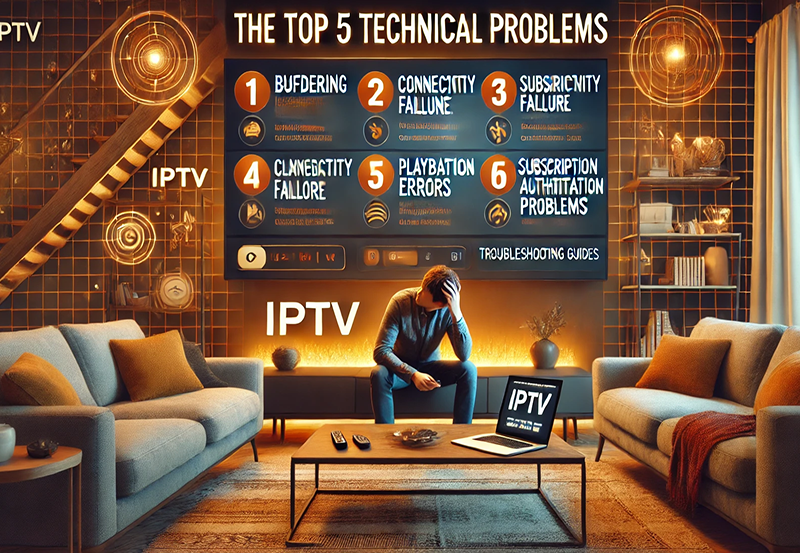Streaming through IPTV with movies and series has become increasingly popular as users look for on-demand entertainment solutions. While Premium IPTV services offer numerous benefits, such as a broad range of content and higher quality streams, many users encounter issues that hinder their experience. One of the most common problems is blocked IPTV ports, which can disrupt the seamless enjoyment of content. This comprehensive guide explores the common mistakes leading to blocked IPTV ports and offers solutions to ensure you can Stream Smarter and Enjoy IPTV Better.
Understanding IPTV and Port Blocking
IPTV, or Internet Protocol Television, is an innovative technology that allows users to stream content over the internet rather than through traditional satellite or cable formats. It offers unprecedented flexibility and variety with the option to customize the viewing experience to one’s preference.
Port blocking occurs when an Internet Service Provider (ISP) or a network firewall restricts access to specific ports that IPTV services need to function properly. This often results in interrupted streams, inability to access content, and overall poor performance of the service.
Pro Suggestion:
Access global live TV with Calma Hub IPTV, designed for seamless streaming across all your favorite devices.
Why Ports Matter in IPTV Streaming
Ports are digital channels through which data exchange occurs. For IPTV services, particular ports must remain open to facilitate the seamless flow of data between the server and user devices. When these ports are blocked, this flow is interrupted, causing disruptions in service, such as buffering or the complete inability to stream content.
Each IPTV provider may use different ports, but generally, these are predetermined and essential for operations. Understanding which ports are crucial for your service provider can aid in diagnosing and preventing potential blocking issues.
Common Mistakes Leading to Blocked Ports
For many users, the reality of blocked IPTV ports surfaces from a few common errors. Although often accidental, these mistakes can have serious impacts on the streaming experience. Recognizing these pitfalls helps in maintaining smooth functionality.
Incomplete Network Configuration
A frequent issue stems from poor network configuration. Many users might not configure their routers and firewalls to allow IPTV traffic through required ports. This oversight can be due to a lack of awareness or misunderstanding of how to set up or manage these network components properly.
To combat this, regularly review your network settings and consult with your IPTV provider for specific instructions on how to configure relevant ports.
Neglecting ISP Restrictions
Internet Service Providers may impose restrictions to control network traffic, particularly for IPTV services, as these can consume significant bandwidth. Users often overlook these ISP-imposed limitations, leading to blocked ports and slow streaming speeds.
Engage with your ISP to understand their policies on IPTV services. Sometimes, changing your subscription plan or ISP might be necessary to avoid these blocks.
Solutions and Best Practices for Uninterrupted Streaming
Blocking can be frustrating, but several strategies can mitigate these issues and enhance your IPTV streaming experience. Implementing the following best practices can significantly reduce the likelihood of blocked ports and streaming interruptions.
Port Forwarding Configuration
One effective method to prevent port blocking is setting up port forwarding. This process directs external internet traffic to specific devices on your internal network, which is essential for ensuring that IPTV traffic reaches your device seamlessly.
- Access your router’s settings via a web browser.
- Locate the port forwarding section, often found under “Advanced” or “Network settings”.
- Input the necessary port numbers and assign them to your IPTV device’s IP address.
- Save your changes and restart your router.
Use of Virtual Private Networks (VPNs)
VPNs can help bypass ISP restrictions by masking your internet activity and allowing seamless access to IPTV content. When selecting a VPN, ensure it offers reliable and fast services since VPNs can sometimes slow internet speeds themselves.
Choose a VPN with a reputation for bypassing geo-restrictions and one that doesn’t throttle bandwidth. Most premium VPN services are easy to install and operate across numerous devices, enhancing the flexibility and accessibility of your IPTV experience.
Consulting with Technical Support
Sometimes, issues may be beyond general user knowledge. In such cases, reaching out to technical support from your IPTV provider can provide insight and solutions tailored to your specific scenario. Providers often have expert teams familiar with common problems and precise adjustments needed to rectify them.
Also, participating in customer forums and communities online can offer peer support, as other users may have experienced and solved similar issues.
Additional Tips for Optimal IPTV Use
Apart from addressing port blocking, maintaining an overall efficient setup is crucial for enjoying a Premium IPTV experience. This means ensuring that your hardware and software environment is optimized for IPTV use.
Regular Device Updates
Updating your streaming devices, whether it’s a smart TV, streaming box, or PC, is vital in staying abreast with the latest security features and functionality improvements. Regular updates help in managing device compatibility with your IPTV service, ultimately providing better performance and security.
Avoid skipping firmware updates and regularly check for any new versions to ensure you’re capitalizing on the latest advancements in technology.
Maintain a Stable Internet Connection
Even when port issues are resolved, having a stable and robust internet connection remains critical. Consistent speed above 10 Mbps per stream is usually recommended for streaming IPTV content without interruptions.
Consider wired connections when possible, as they tend to be more reliable than wireless connections, reducing potential points of failure and providing better streaming quality.
Creative Closure: Steer Toward Smoother Streaming
IPTV offers a fantastic gateway into the expansive world of digital entertainment. While blocked ports can pose challenges, understanding and addressing common mistakes ensures a smoother, enjoyable viewing experience. By optimizing your internet setup and staying informed on technical factors, you can vastly improve your Premium IPTV enjoyment. Remember, while technology can sometimes be daunting, a little proactive management goes a long way in transforming your streaming endeavors into seamless enjoyment.
Frequently Asked Questions

What Causes IPTV Ports to Be Blocked?
IPTV ports can be blocked due to ISP restrictions, improper network configuration, or firewall settings. Understanding the technical requirements of your IPTV service and any ISP policies can help in diagnosing and mitigating port blockages.
How Can I Unblock IPTV Ports?
Unblocking IPTV ports typically involves configuring your router to forward the necessary ports or using a VPN to bypass ISP restrictions. Ensuring correct network configuration is crucial in accessing IPTV content smoothly.
Is Using a VPN Legal for IPTV Streaming?
Using a VPN is legal in most countries, provided it aligns with your local laws and doesn’t engage in unlawful activities. VPNs serve as a useful tool for ensuring privacy and accessing restricted content, but ensure you’re compliant with legal guidelines.
What are the Benefits of Premium IPTV?
Premium IPTV services offer a wide array of content, higher quality streams, and added convenience in accessing television entertainment beyond traditional means. This service enhances viewing with tailored content options and a customizable viewer experience.
Do I Need High-Speed Internet for IPTV?
Yes, a stable high-speed internet connection is crucial for uninterrupted IPTV streaming. Typically, a minimum of 10 Mbps is recommended per device to ensure smooth playback and avoid buffering issues.
Can Technical Support Help with Port Issues?
Yes, reaching out to your IPTV service’s technical support can be beneficial. They have specialized knowledge and experience dealing with common obstacles users face, including port issues, and can offer tailored advice for resolution.
How Do I Access Router Settings for Port Forwarding?
To access your router settings, enter the router’s IP address into your web browser. You will need administrator credentials to make changes. Consult your router’s manual or support website for detailed instructions on accessing and modifying these settings.
What Are M3U Files and How Do They Work with IPTV?





